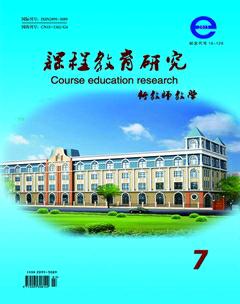Analysis of Reinforcement of Civil Evidence
Sun+Xiaoyue
【Abstract】Corroborative evidence is the basis for ascertaining and corroboration rules are proof the rules, plays a corroborative proof function and limiting the discretion of judges. Full study of corroborative evidence in civil procedure rules to use, helps to perfect evidence rules of civil procedure and civil systems.
【Key words】Reinforcing the rules of evidence ; Civil ; rules apply
【中圖分类号】D925.1 【文献标识码】B 【文章编号】2095-3089(2015)7-0007-01
“Reinforcing evidence”, means to enhance proof or guarantee the main force of the evidence, not the main evidence is evidence independently as necessary; namely in the main evidence of evidence, nor shall not, and no direct evidence, and including indirect evidence. Reinforcing evidence rule is “to prevent the mistakes of the case facts, clearly for some strong weak evidence, requires other evidence to confirm that can be invoked as the final result according to the rules of”. Reinforcing evidence rules from the criminal litigation, mainly for the defendant confession evidence such as the use of words. Now reinforcing the use of evidence rule is no longer confined to the field of criminal litigation, judicial interpretation by the supreme people?蒺s court, reinforcing evidence rule has begun to enter the field of civil action, but at present our country the study of reinforcing rules also is not very profound, for reinforcing rules include the basic content of understanding and chaos. Such confusion in reinforcing the positioning of the evidence rules, reinforcing evidence objects, reinforcing evidence is the strength of the team, range, review several aspects. Therefore, reinforcing evidence rule in the civil lawsuit research blank and there are a lot of difficulty.
I. The functions and properties of the corroboration rule
(I)Corroboration rules features
1.Reinforcing the main proof, restoring the real circumstances of the case
As with the other evidence, if it has evidence to attribute the required relevance, authenticity and legitimacy cannot be confirmed. After cross?鄄examination, attestation, after verified, the judge decided to accept, corroborative evidence would become civil procedure, can be used as a basis for ascertaining a fact.
2.Limiting judges?蒺 discretion to prevent misjudgment
The basic function of the law of evidence is to ensure that judicial officers and accurate facts of the case, the primary function is to ensure that the rules of evidence to identify the case facts.Evidence rule in the law of evidence mandates is to provide the judge found evidence standards of conduct limit the arbitrary discretion of judges, to ensure maximum effectiveness evidence able to enter the judge?蒺s view, helping to discover the true circumstances of a case.endprint
(II)The nature of the corroboration rules
Rules of corroboration, there are for two kinds of evidence in interactions. Is enhancement or guarantee the probative force of the evidence, you can call the main evidence or evidence; other enhancement or guarantee the main proof of evidence that is corroborative evidence. Both are corresponding to each other.
1. Corroborative evidence are the basis for deciding
Evidence of probative force to explore the issue, the evidence should be qualified on the basis of evidence, only qualified evidence, the judge can be adopted for use as evidence in order to play the role of evidence to prove proper.
2. The rules of evidence is probative force reinforcement rule
Rules of evidence has probative force rules and rules of evidence, proof rules can be divided into proof negative rules, such as rules, reduced probative value proof reinforcement rules, rules of proof presumption of precedence rules and probative force.
II.The concrete application of the rule of corroboration
To use corroborative evidence in the civil action responsibility requires three steps:First, a probative evidence of qualification needs reinforcement, that is, whether its probative value is weaker, and the proof leads to fail to prove the facts of the case. Second, the corroborative evidence submitted by the parties is enough to meet the legal requirements, that is, whether there is three, the proof might not be enough; the third, deductive reasoning, in the judge?蒺s sure sense of positive or negative.
(I)Correctly identify the primary evidence
Applying the rules first condition is to have an object, reinforcing the rules of evidence applicable object is insufficient strength of the evidence, and therefore requires first determine the primary evidence. Primary evidence should have evidence first, as a basis for decision, so “reinforcing rules relate only to the probative value of the evidence and no evidence”. If there is no evidence there is no evidence as a basis for decision, then the exclusionary rule should be used, for example, the best evidence rule, the exclusionary rule.
(II)the legal reasoning, the formation of moral
Evidence of the presence and size of the force being judged by a free heart judge by judge just how much influence and experience. Free heart contains two meanings: evaluating evidence way free and judge the facts of the case the formation of heart confirmed the facts. From the perspective of nature, in the law of civil law countries of “moral” is expressed by the facts that should reach the level of awareness, awareness reaches the standard of proof. Therefore, free heart is hosting a free evaluation of the probative value. Corroboration is enough, relies on judges to master between evidence and corroborative evidence implicated degree of awareness. Through the integrated authentication method, judges examine evidence and corroboration of these two contact ratio and the evidence object inference a reasonable degree of primary evidence. Ultimately to evaluate whether the probative value of the evidence had been reinforced.endprint

